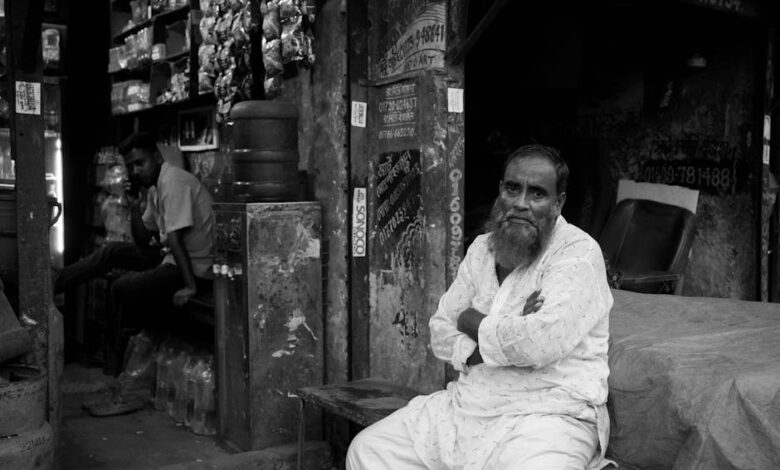Messi’s Masterclass: Defying Age, Defining an Era

Remember that feeling of watching a truly generational talent transcend their sport, leaving an indelible mark that reshapes everything around them? For football fans, especially those in North America, that feeling is palpable right now, courtesy of Lionel Messi and Inter Miami. We’ve seen flashes of brilliance, moments of magic, but what unfolded in the recent MLS playoffs wasn’t just another highlight reel – it was a definitive declaration. Messi didn’t just play; he masterminded a historic chapter for his club, bagging a brace that cemented Inter Miami’s place in the playoff history books.
It’s a story that feels almost too perfectly scripted. A club, relatively new to the league, brings in the greatest player of all time, and in what seems like the blink of an eye, they’re not just competitive, but outright champions in the making. This isn’t just about a star signing; it’s about the seismic shift in ambition, performance, and expectation that one player can ignite. Let’s unpack the layers of this extraordinary achievement.
Messi’s Masterclass: Defying Age, Defining an Era
When Lionel Messi stepped onto the pitch for the MLS playoffs, the weight of expectation was immense. Could he replicate his regular-season heroics on the biggest stage? The answer, unequivocally, was yes. His brace wasn’t just a matter of two goals; it was a symphony of skill, vision, and clinical execution that reminded everyone exactly why he’s considered the GOAT.
The first goal, a signature Messi finish from outside the box, curled with impossible precision, leaving the goalkeeper rooted. It wasn’t just a goal; it was a statement, an assertion of dominance that set the tone for the entire match. Then came the second, a testament to his uncanny ability to be in the right place at the right time, coupled with that subtle touch that dissects defenses. These weren’t mere points on a scoreboard; they were brushstrokes from an artist operating at the peak of his powers, even at 38 years old.
It’s fascinating to watch an athlete defy conventional wisdom regarding age and decline. While many players begin to slow down, to conserve energy, Messi seems to find new avenues for impact. He controls the tempo, dictates the flow, and, crucially, delivers when it matters most. It’s no wonder he’s already well on his way to securing his second successive MLS MVP award. His influence stretches far beyond the score sheet, permeating every aspect of Inter Miami’s play.
Beyond the Goals: The Architect’s Unseen Influence
To focus solely on Messi’s goals, as spectacular as they were, would be to miss the broader tapestry of his influence. His game intelligence is unparalleled. He’s not just a goal scorer; he’s the chief architect, the conductor orchestrating every attacking move. The passes that split defenses, the sudden bursts of acceleration that open up space for teammates, the decoy runs that pull defenders out of position – these are the subtle yet profound contributions that elevate Inter Miami from a good team to a truly formidable one.
Watching him play, you observe a level of spatial awareness and decision-making that is simply a cut above. He knows precisely when to release the ball, when to hold it, and where his teammates will be before they even get there. This telepathic understanding, fostered through relentless training and years of elite-level experience, is contagious. It raises the game of everyone around him, transforming hopeful passes into incisive attacks and creating opportunities that simply wouldn’t exist without his presence.
Inter Miami’s Ascent: From Underdogs to Playoff Pioneers
Messi’s individual brilliance is undeniable, but the story of Inter Miami’s journey to making history in the MLS playoffs is a collective triumph. Before his arrival, the team faced its share of struggles, often finding themselves battling near the bottom of the table. Their transformation has been nothing short of spectacular, a testament to the power of leadership, talent acquisition, and a shared vision.
The historical significance of their playoff run cannot be overstated. For a club in its nascent stages, navigating the notoriously competitive MLS landscape to not only qualify but to make such a profound statement in the postseason is a landmark achievement. It speaks volumes about the club’s management, their strategy in building a complementary squad around Messi, and the coaching staff’s ability to integrate diverse talents into a cohesive unit.
Building a Dynasty: What This Means for the Future
This playoff success is more than just a fleeting moment of glory; it’s the foundation upon which Inter Miami can build a lasting dynasty. The momentum generated, the confidence instilled, and the global recognition garnered are invaluable. Young talents will be drawn to the club, not just by the allure of playing alongside Messi, but by the tangible proof of what can be achieved.
For the MLS itself, Inter Miami’s journey is a beacon. It validates the league’s ambition to attract global superstars and demonstrates the immediate impact such players can have. It elevates the league’s profile, boosts viewership, and fuels investment. This isn’t just good for Inter Miami; it’s revolutionary for the entire North American soccer landscape, proving that the MLS is a serious contender on the world stage.
The Global Ripple Effect: Messi’s MLS Revolution
The “Messi effect” in MLS has been discussed extensively, but his playoff heroics have amplified it exponentially. We’re witnessing a global ripple effect that transcends mere sports fandom. Broadcast deals are being re-evaluated, merchandise sales are soaring, and stadium attendance records are being shattered. Suddenly, eyes that once solely focused on European leagues are now keenly observing every Inter Miami match.
This isn’t just about entertainment; it’s about cultural integration and commercial expansion. Messi’s move has opened up new demographics, converting casual observers into fervent supporters. It’s sparked conversations in living rooms and boardrooms alike, demonstrating the immense power of an iconic figure to transform an entire league’s perception. The narrative has shifted from “MLS is a retirement league” to “MLS is a growing, dynamic league with world-class talent.”
This revolution extends to player recruitment as well. Other established stars, previously hesitant to consider a move to North America, are now looking at the league with renewed interest. The quality of play is demonstrably improving, driven by the higher standards set by players like Messi and the increased competitiveness his presence has inspired. It’s a virtuous cycle, where success breeds more success, attracting better players, and further elevating the league’s stature.
A Legacy Forged in Pink and Black
Lionel Messi’s arrival at Inter Miami was never just about signing a player; it was about ushering in a new era. His brace in the MLS playoffs, combined with Inter Miami’s historic advancement, is more than just a win – it’s a testament to the transformative power of a true legend. It’s a story of defying expectations, building a dream, and ultimately, making history. As the pink and black faithful celebrate, they’re not just cheering for a victory; they’re witnessing the construction of a legacy, one breathtaking goal and one monumental team achievement at a time. The journey continues, and if the past few months are any indication, there’s even more magic yet to come.





